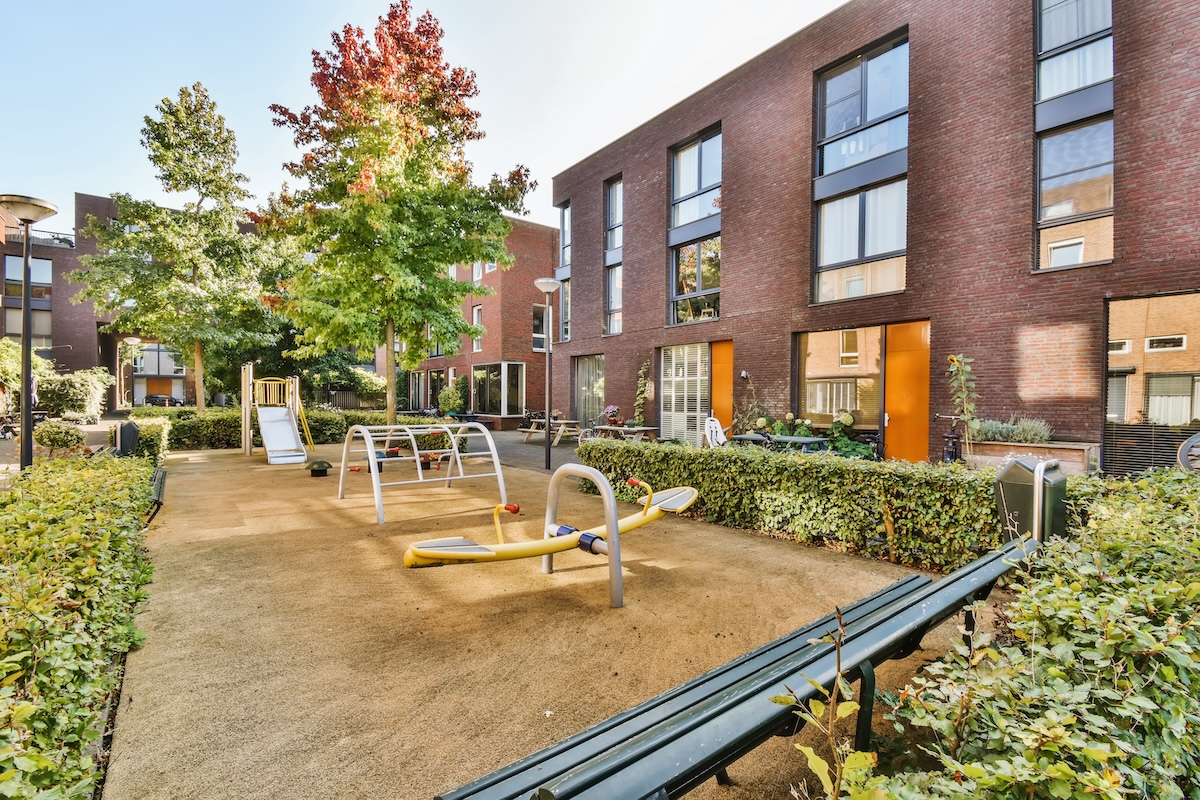
The Case for Courtyard Apartment Buildings: A Family-Friendly Urban Solution
In today’s rapidly urbanizing world, finding a simple yet effective design choice that enhances family living while ensuring children’s safety is crucial. Urban designer Alexandra Lange believes that the answer lies in courtyard apartment buildings. These architectural gems promote not just aesthetic value but also foster community and safety for young residents.
In a society where the streets are often filled with cars, letting children play freely outside has become a daunting task for contemporary parents. As Jenny French, a designer at the renowned firm French 2D, aptly expresses, “In an urban setting, the barrier that the contemporary parent has to letting their child out the door is increasingly complicated by a car-dominated environment.” Courtyards, she argues, present an ideal solution for families looking for safe outdoor play spaces.
Real-Life Examples of Courtyard Success
Lange highlights several successful examples from across the nation that demonstrate the effectiveness of courtyard designs. One exemplary project is Brunson Terrace, a 48-unit, entirely affordable housing development in Santa Monica, California, that opened its doors in 2024. Designed by the architecture firm Brooks + Scarpa, this project features a deliberately modest ground-level courtyard, dedicated as a safe haven for children. The area is adorned with bright climbing structures juxtaposed against organic planting beds, offering not just a place to play, but a natural environment to explore.
The layout of Brunson Terrace showcases an innovative approach to urban living, where exterior bridges, stairs, and walkways not only enhance aesthetics but also facilitate functional movement throughout the space. The strategic placement of laundry rooms near staircases enriches daily chores, allowing caregivers to keep an ear out for children playing below, blending safety with convenience.
The Timeless Appeal of Courtyards
Courtyards may evoke images of traditional brick and stone designs from a bygone era, but they are evolving. Lange emphasizes, “Courtyards don’t have to belong to the past.” Modern architects are embracing a variety of materials and designs, creating courtyards that resonate with contemporary lifestyle needs. They are not limited to historical aesthetics but are being reimagined for all types of housing — from stylish townhomes to multi-story apartment buildings, each equipped with communal green spaces that foster neighborly relations.
Addressing the Housing Affordability Crisis
In addition to promoting safety and play, courtyard housing offers a significant solution to the pressing housing affordability crisis. These multi-family projects frequently fall into the category of “missing middle housing.” This term refers to a range of housing options that span from accessory dwelling units and duplexes to mid-rise apartment complexes. Courtyards provide an ideal layout for these forms of housing, maximizing useable green space while promoting community interaction.
By offering accessible, affordable, and family-friendly housing, courtyard designs could play a pivotal role in alleviating the housing shortage we face today. They can facilitate a lifestyle where families can thrive within urban settings without sacrificing their children’s safety or access to outdoor space.
The Future of Urban Housing
As cities continue to evolve and grow denser, the necessity for thoughtful urban planning becomes even more critical. Designing environments that cater to families and prioritize child safety must be a top consideration for urban planners and architects. Favoring courtyard apartment buildings could indeed be a transformative step forward, not only improving the quality of life for residents but also addressing broader social issues like community bonding and safety.
In conclusion, the case for courtyard apartment buildings is compelling. They promise to deliver much-needed family-friendly spaces in the urban landscape while addressing housing affordability and enhancing community interaction. As we look to the future, it’s essential to create environments that embrace both modernity and accessibility, ensuring that children can play safely while families thrive in the heart of the city.


